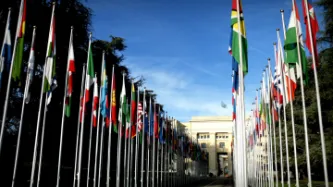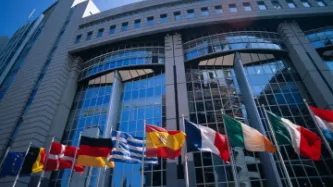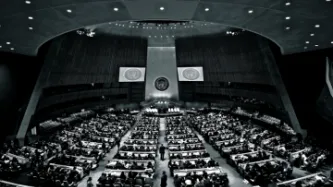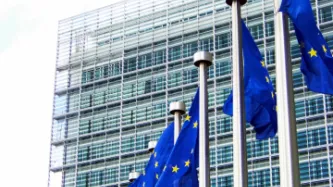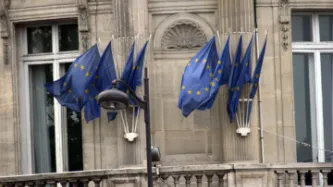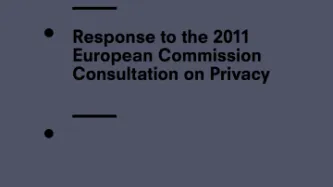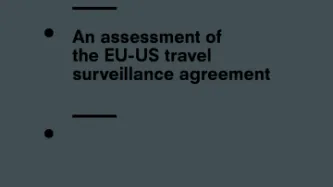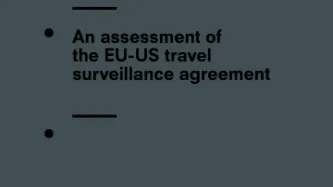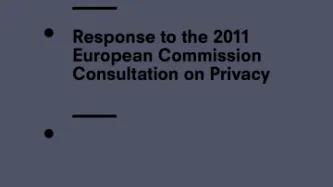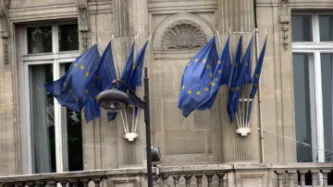Search
Content type: Advocacy
Introduction
On 29 February 2016, the European Commission and the US government released the details of the proposed EU-U.S. “Privacy Shield”. The “Privacy Shield” replaces the now defunct so-called “Safe Harbor”.
The Privacy Shield is in fact a significant number of documents from various parts of the U.S. administration, which merely outline the existing, weak U.S. safeguards applicable to personal data of EU citizens. These documents are meant to serve as the basis for an “adequacy”…
Content type: Long Read
“This is my personal opinion,” concedes Branko, a taxi driver in Skopje, the Republic of Macedonia's capital. “It was done by America to stop Putin building his gas pipe line through Macedonia.”
“This is just politics,” he advises, skeptically.
It's a common reaction to the wiretapping scandal in Macedonia. Beginning in February last year when opposition leader Zoran Zaev posted a series of wiretaps online that he called 'bombs' – they seemingly showed that for years the phone calls of some…
Content type: News & Analysis
In 2015 the United Nations' human rights mechanisms significantly increased their capacity to monitor and assess states' compliance with their obligations around the right to privacy. Notably, the Human Rights Council established the mandate of the Special Rapporteur on the right to privacy, filling a significant gap in the international human rights protection system. Meanwhile, the Human Rights Committee put surveillance laws and practices in a range of countries under close scrutiny, making…
Content type: News & Analysis
The major overhaul of data protection laws in Europe is finally over, after three years of arduous and sustained political and lobbying activity by all those with a major stake and interest, including us at Privacy International (See our initial analysis of the two laws in 2012). We welcome this long overdue closure, but is this 91-articled, 200-paged piece of legislation been worth the enormous effort and no doubt millions of euros, dollars and pounds spent on it?
The legislative package…
Content type: Press release
Statement by European Digital Rights (EDRi), Bits of Freedom, Digitale Gesellschaft e.V, Digital Rights Ireland and Privacy International following the vote of the European Parliament’s Civil Liberties Committee on the Data Protection
In January 2012, the European Commission, following extensive consultations, published a draft Regulation and a Directive to create a strong framework for data protection in the EU. The initiative had three priorities – modernisation of the legal framework for…
Content type: News & Analysis
Sometimes it takes an unexpected stranger to remind you what you have, and what you are at risk of losing. Roman Zakharov, a Russian publisher who challenged Russia’s surveillance legislation, is that stranger for many Brits and Europeans. The Grand Chamber of the European Court of Human Rights judgement on Friday 4 December 2015 was remarkable, not because it tore up the rule book on the jurisprudence surrounding state surveillance in the Council of Europe, but because it followed…
Content type: News & Analysis
Today the Grand Chamber of the Court of Justice of the European Union ruled that mass surveillance is in violation of the right to privacy and that a legal system that provides no legal redress against interference with someone's privacy falls short of EU human rights standards.
The Court was seized following a complaint initiated by Mr Schrems to the Irish Data Protection Commissioner about the transfer of his Facebook data from Ireland to the US under the now defunct “…
Content type: Advocacy
This stakeholder report is a submission by Privacy International (PI). PI is a human rights organisation that works to advance and promote the right to privacy and fight surveillance around the world. PI wishes to bring concerns about the protection and promotion of the right to privacy in Estonia before the Human Rights Council for consideration in Estonia's upcoming Universal Periodic Review.
Content type: News & Analysis
The Coalition Against Unlawful Surveillance Exports (CAUSE) has today released a new policy paper calling on the EU to take the opportunity to update its Dual Use Regulation to ensure that surveillance technologies are not exported from Europe and used for human rights violations.
The proposals have been developed by the international secretariat of CAUSE, a coalition of NGOs consisting of Access, Amnesty International, Digitale Gesellschaft, Human Rights Watch, the…
Content type: News & Analysis
After remaining in the shadows for decades, the right to privacy is finally having its day in the sun at the United Nations.
And rightfully so, given how seriously the right has been uniquely threatened in the past few years. Technology continues to rapidly evolve in the digital age, Western intelligence agencies are undertaking mass and indiscriminate surveillance of the world's communications, and countries around the world are continually adopting heavy-handed policies that imperil privacy…
Content type: Press release
Privacy International, Reporters Without Borders, Digitale Gesellschaft, FIDH, and Human Rights Watch welcome news that the European Commission will move ahead and add specific forms of surveillance technology to the EU control list on dual use items, thus taking steps to finally hold companies to account who sell spy equipment and enable human rights abuses.
These important steps demonstrate that policymakers are beginning to wake up to the real harm that exists…
Content type: News & Analysis
The past year has been an important one for the right to privacy. Privacy was Dictionary.com’s word of the year in 2013. Human Rights Watch called it “The Right Whose Time Has Come (again).”
However, privacy has not received enough attention in the international bodies that are meant to ensure our human rights are protected: there has been no major statement on privacy by a United Nations human rights body since 1988.
One crucial step to protect privacy, and address how the…
Content type: News & Analysis
The European Union’s privacy and data protection laws are some of the strongest in the world. And the privacy-related activities of the last European Parliament (2009-2014) have been the most intense in its history. For half of its term it steered the highly-debated data protection law reforms, with a first plenary vote cast in the nick of time before it dissolved last April. And for the last year it dealt with the fallout of the mass surveillance revelations by Edward Snowden, which…
Content type: Press release
The ruling today from the European Court of Justice, invalidating the European Union’s 2006 Data Retention Directive policy, was strong and unequivocal: the right to privacy provides a fundamental barrier between the individual and powerful institutions, and laws allowing for indiscriminate, blanket retention on this scale are completely unacceptable.
As the Court states, it is not, and never was, proportionate to spy on the entire population of Europe. The types of data retained under this…
Content type: News & Analysis
What is the Wassenaar Arrangement?
The Wassenaar Arrangement on Export Controls for Conventional Arms and Dual-Use Goods and Technologies (the "Wassenaar Arrangement") is a multilateral export control regime in which 41 states participate.
The Wassenaar Arrangement was established on 12 July 1996 in Wassenaar, the Netherlands by 33 founding members to contribute to regional and international security and stability. It is the successor to COCOM, a NATO based…
Content type: News & Analysis
We, and other privacy advocates, havecriticised the poor provisions of the so-called Safe Harbour agreement, which allows free transfers of personal information from European countries to companies in the United States that have signed up and promise to abide by its Principles. Now the European Commission, prompted by the recent mass surveillance scandals, has published an investigation into this agreement which provides overwhelming evidence that it is not fit for purpose. It…
Content type: News & Analysis
What a difference a few months, and some intelligence agency leaks, make.
In early June an important report warning of increasing State surveillance was submitted to the United Nations Human Rights Council. It was met with barely more than scant attention. Days later, Edward Snowden’s leaks hit the front page of the Guardian, and woke the world up to how intelligence agencies in the US and UK are using questionable legal justifications to spy on their own…
Content type: News & Analysis
The European Parliament Committee that deals with civil liberties and justice issues will have a first vote this week on the revised European data protection framework after months and months of deliberations and negotiations over more than 4,000 amendments. The vote is the first on the framework, which will decide the future of privacy and data protection in Europe. The recent revelations surrounding government surveillance involving some of the Internet's biggest companies have highlighted…
Content type: Press release
Google's latest Transparency Report, released at 3pm GMT this afternoon, shows that requests by European governments for the browsing history, email communications, documents and IP addresses of Google's users have skyrocketed since the Transparency Report was launched three years ago. Countries in the European Union made 7,254 requests about 9,240 users or accounts between July and December 2012, averaging over 1,200 requests a month. This represents over a third of all requests made by…
Content type: News & Analysis
Privacy International welcomes the Select Committee Inquiry. We approach the proposed EU Data Protection Framework from the perspective of individual citizens and consumers.
We consider that this Inquiry and other consultations must take into account not just considerations of burdens to business and administrations, but also the fundamental rights of individuals to privacy and data protection that the UK has to comply with as a signatory to EU treaties and conventions.
The…
Content type: Report
Following on from their 2009 discussion paper, in 2010 the European Commission published a Communication on changes to the 1995 European Union Directive on data protection. The European Union’s 1995 Directive on data protection is a leading regional instrument for privacy and is often the model for other countries across the globe. The Directive has been integral to pushing back against key surveillance and tracking initiaitives by governments and industry.In this report we respond to that…
Content type: Report
The US does not have a general overarching privacy law like European Data Directive or the sweeping privacy protections contained in the European declarations of rights. The EU-US accord cites several laws, which it claims, give privacy rights to non-US persons. None of the cited laws offer any real substantive or procedural protections for Europeans. As explained below, the one law – the Privacy Act 5 U.S.C 552a – that could offer some modest protections is tellingly not even mentioned.
But…
Content type: Report
This is a memo prepared by Barry Steinhardt of Friends of Privacy USA for Members of the European Parliament regarding the proposed EU-US Agreement PNR.
The proposed agreement regarding Passenger Name Records (PNR) between the United States and the European Union is riddled with faulty assertions and assumptions about US law and the actual operations of the US government.
These faulty assertions and assumptions go to the heart of the agreement and undercut the claims of protections for…
Content type: Report
Following on from their 2009 discussion paper, in 2010 the European Commission published a Communication on changes to the 1995 European Union Directive on data protection. The European Union’s 1995 Directive on data protection is a leading regional instrument for privacy and is often the model for other countries across the globe. The Directive has been integral to pushing back against key surveillance and tracking initiaitives by governments and industry.
In this report we respond to that…
Content type: News & Analysis
The European Parliament voted today to adopt a new directive allowing for the retention of data "generated by telephony, SMS and internet, but not the content of the information communicated". This data includes email addresses and location data from cell phones. The directive is highly controversial due to the impact it will have on the privacy of European Union citizens.
Also of concern is the broad discretion that is left to EU member states. For example, data may be accessed for the…


